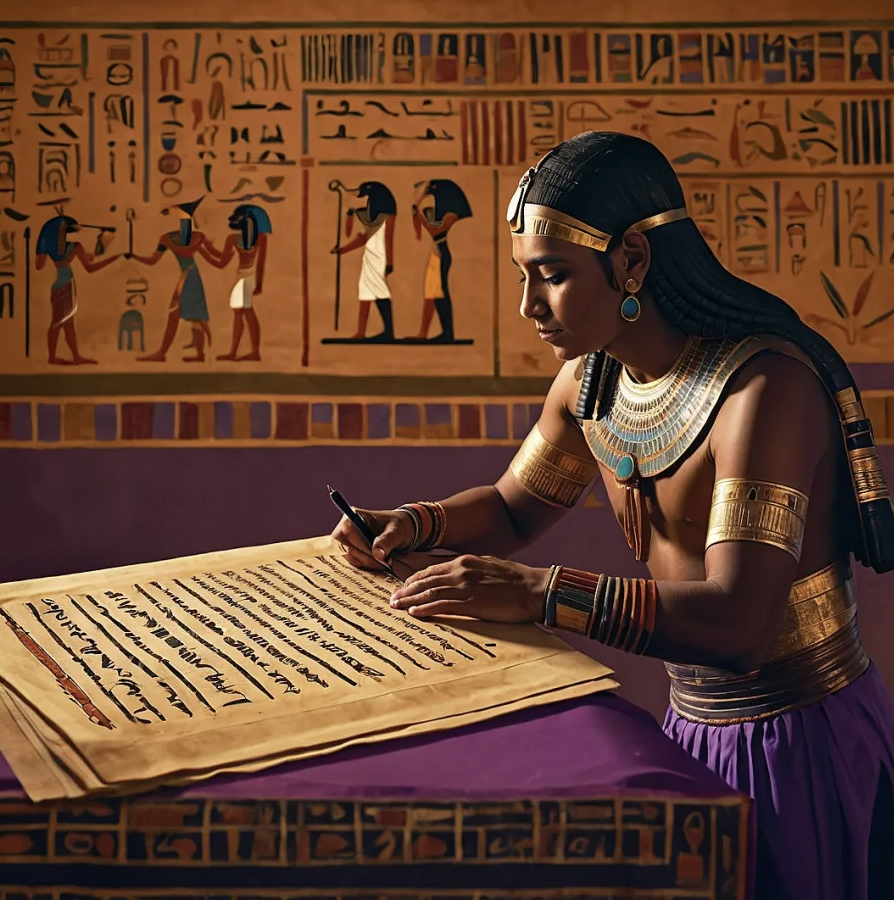
Worldbuilding is one of the funniest, but also most tedious steps to take before writing any spec fic work. Whether it’s a short story, novella, or a full-blown novel, a coherent world always adds an extra sense of immersion to the reader.
But, it can also involve countless hours of research, which we can now shorten through the use of AI.
Here’s how:
Which AI Tool Should You Use?
The first step is choosing which AI tool you’ll use. There are several options available, depending on the type of world-building assistance you’re looking for. Some tools focus on generating creative ideas, while others specialize in organizing data or helping with consistency across your fictional universe. For instance, AI language models like ChatGPT can help you brainstorm concepts or even craft detailed descriptions for cities, characters, or magical systems. On the other hand, map generation tools, like Perchance, or character development assistants like Taskade might better suit those needing help visualizing their world or developing character dynamics.
MidJourney, in particular, is known for creating detailed and imaginative visuals that can inspire the mood and aesthetic of your fictional universe. Leonardo AI, on the other hand, offers more flexibility in refining those visuals, making it a great option for fine-tuning specific elements, like costumes or architectural details.
You’ll likely have to use a combination of these to streamline the process, and while many of them have upfront costs like subscriptions, they’ll be much cheaper than hiring an illustrator or a designer.
Now, let’s start with the actual work.
1. Generating Ideas and Inspiration
The first step in building any fictional world is coming up with ideas. AI tools like ChatGPT and AI writing assistants can help writers generate initial concepts and ideas for their world. By inputting simple prompts like “Describe a futuristic society where technology controls everything” or “Imagine a fantasy world with floating cities,” writers can receive dozens of unique and imaginative descriptions that can serve as a foundation for their stories. These AI-generated ideas can spark inspiration and help writers think outside the box when building the framework for their world.
AI also excels at pattern recognition, which can help writers discover recurring themes, connections, or plot ideas that could enrich their world. Whether you’re stuck or just exploring new possibilities, AI can be a valuable brainstorming partner to help you start building a coherent universe.
2. Creating Consistent World Rules
World-building isn’t just about geography or magical creatures—it’s also about the internal rules that govern the fictional universe. Every coherent world needs a set of rules, whether it’s how magic functions in a fantasy world or how time travel works in a sci-fi setting. AI can help by ensuring that the rules a writer establishes stay consistent throughout the story.
AI-powered systems can be trained to recognize the specific rules and logic of a fictional world and point out inconsistencies or contradictions that could break the reader’s immersion. For example, if a character is said to have special powers that only activate at night, the AI can flag if the writer accidentally breaks this rule by having the powers activate during the day. This kind of real-time feedback can help fiction writers maintain internal consistency and avoid plot holes.
3. Developing Complex Cultures and Societies
A coherent world often features diverse cultures, social structures, and belief systems that interact with one another in meaningful ways. AI can assist fiction writers in creating these intricate details by pulling from vast databases of real-world cultural and societal information, offering suggestions for traditions, languages, governmental structures, and more.
By analyzing existing cultures, AI can help writers generate fictional societies that feel fully fleshed out. For instance, a writer could use AI to develop the economy of a medieval-inspired kingdom or the political dynamics of an intergalactic empire. AI tools can even be programmed to create fictional languages, dialects, and naming conventions that add authenticity to the world.
4. Mapping Out Geography and Ecosystems
For writers who struggle with visualizing their world’s geography or ecosystem, AI tools can help in creating detailed maps or descriptions of the physical environment. This visual aspect helps to maintain a coherent physical structure for the fictional world.
Perchance works like this. You type in the prompt describing what you want to see, then below clarify what you don’t want to see (the anti-description or negative prompt), the art style (fantasy world, sci-fi, etc) and finally, the shape of the landscape.
ChatGPT can also provide suggestions on how ecosystems might behave based on geographic features, weather patterns, or other environmental factors. Writers can use these tools to craft a believable world where the flora, fauna, and even climate reflect the terrain’s challenges and resources.
5. Character Development and Interaction
Characters are an integral part of any fictional world, and they need to feel like real individuals who belong to that world. AI can assist with character development by analyzing character traits, motivations, and relationships to ensure that characters act in ways consistent with their background and the world around them. It can also generate character profiles and backstories, helping to weave them more naturally into the world.
Additionally, AI can help writers simulate character interactions, creating more dynamic and realistic dialogue based on the characters’ personalities and cultural background. This can result in more cohesive world-building, as the way characters speak and interact will reflect the society they come from, adding layers to the world’s internal logic.
6. Tracking Details and Lore
This is arguably one of the most underrated, yet powerful ways in which AI can help a worldbuilder.
Keeping track of all the small details—like place names, character histories, or the intricacies of the magic system—can be overwhelming, especially when you’re writing a long series or epic novel. AI can be used to manage and organize the lore of a fictional world, acting as a digital encyclopedia. With AI tools, writers can create databases that store all the relevant information about their world, making it easier to search for and reference specific details when writing.
This tracking can also extend to ensuring continuity in a book series, preventing errors or inconsistencies from cropping up in later installments. Having an AI “librarian” for your world-building means never having to worry about forgetting a key detail or accidentally contradicting established lore.
7. Predicting Reader Engagement
AI can also help predict what aspects of your world will resonate most with readers. By analyzing trends in popular genres or themes, AI can offer insights into what readers are currently gravitating toward, helping writers refine their world-building in ways that appeal to their target audience. This can help fiction writers strike the right balance between creative freedom and reader expectations, ultimately resulting in a world that is not only coherent but also compelling.
How can you do this? Well, try using ChatGPT’s command to analyze reader preferences or genre trends. For example, you could ask it to summarize the most popular themes in contemporary science fiction or fantasy. By generating these insights, you can adapt certain aspects of your story—such as world dynamics, conflicts, or character roles—to align with popular reader interests without compromising your creative vision.
In addition, you can use commands like “What are the current popular tropes in fantasy fiction?” or “Which themes are most resonant in speculative fiction this year?” to gauge where your world might need more focus. These insights can help you strengthen the parts of your world that readers are likely to connect with emotionally. For instance, if stories about dystopian societies or complex political systems are currently trending, you can expand those elements in your world to match reader engagement patterns.
The Bottom Line
While many frown upon using AI for fiction work, using it for worldbuilding is more accepted, and even encouraged. After all, you’re not using AI to steal from anyone’s work in this case, just like a writing intern or personal research assistant.
As you embrace these technologies, remember that the hert of your story still comes from your imagination and unique voice. AI serves as a powerful ally, enabling you to focus on what truly matters: crafting compelling narratives and unforgettable characters that will captivate your readers. So, dive into your world-building journey with confidence, knowing that with the right AI tools at your disposal, the possibilities are as limitless as your creativity.



